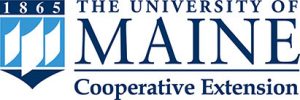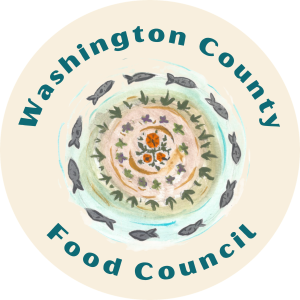Eastern Maine Regional Opportunities for Ocean, Timber and Soil (ROOTS) Conference/Gathering
Mission Statement | Planning Committee |Registration |Schedule | Sponsors | Sponsorship Opportunity| Resources | Past Conference: 2025
Mission Statement

Eastern Maine Regional Opportunities in Ocean, Timber, and Soil (EMROOTS) is a gathering space for people who live, work, and care for the lands and waters of Downeast Maine and connected regions. EMROOTS elevates diverse perspectives across agriculture, forestry, and fisheries to spark collaboration and shared learning. Through this annual event, we cultivate creativity, dedication, and partnerships that support responsible stewardship of natural resources and a more prosperous regional future.
2026 Event
Saturday, March 21, 2026
Snow Date: Sunday, March 22, 2026
10 a.m. to 2 p.m.
Reynolds Center, UMaine Machias
We welcome industry workers, ecosystem enthusiasts, service providers, and community organizations to convene in a casual setting to discuss key challenges and emerging opportunities – within and across sectors. Insights gathered during this event will help shape priority topics for the 2027 Eastern Maine ROOTS Conference. The 2026 half-day “Gathering” looks a little different than the 2025 Eastern Maine ROOTS “Conference”, to be held every odd year (2027, 2029…).”
Come be a part of the conversation!! There is no cost to participate.
Some of the themes for discussion this year will include:
- Workforce development
- Improving efficiencies
- Building sustainable and resilient systems
- Greatest opportunities and challenges
- Climate change concerns and solutions
Organizations and participants are invited to set out informational materials on shared networking tables at this year’s gathering.
Schedule
9:45 a.m. Registration / Welcome / Coffee & Tea
10 a.m. Opening
- Introduce Planning Team & ROOTS purpose
- Housekeeping and overview of the day
- Land Acknowledgement
- “Who’s in the room?”
- Introduce alternating format EMROOTS Conference / Gathering
10:30 a.m. Networking
- 10:30 to 11:00 – Personal/professional introductions – by sector
- 11:00 to 11:30 – Open networking & resource tabling – full group
11:30 a.m. to 12:00 p.m. Lunch featuring local and organic foods (and oysters!)
12:00 to 1:30 p.m. Break-out workshops, facilitated by sector
1:40 to 2:00 p.m. Closing: Finding shared priorities across sectors
Registration
Sponsors
Sponsorship Opportunity
The Eastern Maine Regional Opportunities for Ocean, Timber and Soil Conference planning committee extends an open invitation to interested businesses and organizations to be a sponsor of the conference and help make it a success. Sponsorship provides benefits to your organization and opportunities to interact with farmers, fisherfolk, growers, woodland owners and interested community members from Eastern Maine.
Benefits of conference sponsorship include
- Logo and link on conference web page
- Recognition in conference social media campaign
- Introduction and recognition during opening session of conference program
- Registration and lunch for two individuals
- One exhibit space in prominent location
Thank you for considering sponsorship of this important event. If your organization is interested in becoming a sponsor, please complete this form or email Rachel White, Eastern Maine ROOTS Conference Planning Lead at rachel@maine.edu to discuss sponsorship opportunities.
Planning Committee
- Brian Greulich, Licensed Forester, NRCS technical service provider
- Jasmine Haines, Washington County Food Programs Manager, Healthy Acadia, Machias, and co-facilitator of the Washington County Food Council
- Jessica Leahy, Professor, School of Forest Resources, University of Maine, Orono
- Kyle Pepperman, Executive Director, Downeast Institute
- Kirsten Tenney, Full Plates Full Potential
- Rachel White, Sustainable Agriculture and Livestock Educator, University of Maine Cooperative Extension, Conference Planning Lead
- Tara Wood, Administrative Specialist, University of Maine Cooperative Extension
- Lucy Zwigard, Washington County Food Programs Coordinator, Healthy Acadia, Machias, and co-facilitator of the Washington County Food Council
Resources
- Sign up form for the Washington County Food Council e-list
- Washington County Food Council Facebook Page
- Sign up for the new Downeast Agricultural eNewsletter by Cooperative Extension to share your on-farm events, community initiatives, etc. Send in content to extension.DowneastAggies@maine.edu
- University of Maine Cooperative Extension Washington County Facebook Page
In complying with the letter and spirit of applicable laws and pursuing its own goals of diversity, the University of Maine System does not discriminate on the grounds of race, color, religion, sex, sexual orientation, transgender status, gender, gender identity or expression, ethnicity, national origin, citizenship status, familial status, ancestry, age, disability physical or mental, genetic information, or veterans or military status in employment, education, and all other programs and activities. The University provides reasonable accommodations to qualified individuals with disabilities upon request. The following person has been designated to handle inquiries regarding non-discrimination policies: Director of Equal Opportunity and Title IX Services, 5713 Chadbourne Hall, Room 412, University of Maine, Orono, ME 04469-5713, 207.581.1226, TTY 711 (Maine Relay System).









